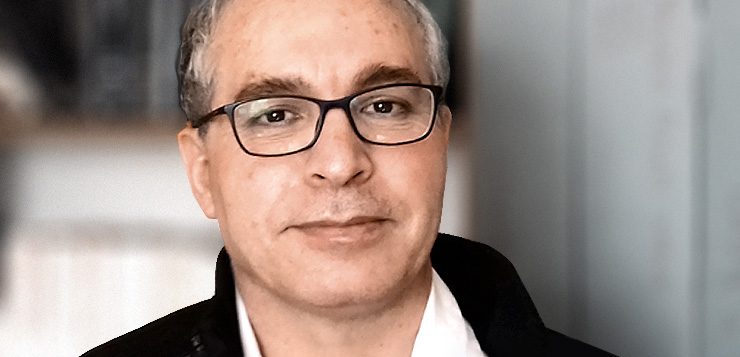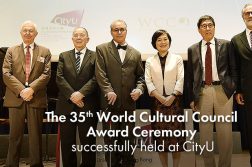The award acknowledges Professor Mâaza’s work in promoting education for societal development and sustainability, and recognises his international and humanistic approach to science education as well as his commitment to training and mentoring young scientists on the African continent. To this end, Professor Mâaza has worked tirelessly to raise funds worldwide in support of researchers from less affluent countries. He has helped scientists from war zones in Africa and the Middle East pursue their research and has organised periodic exchanges between renowned scientists of Israeli and Arabic origin, seeking to build bridges through science.
The WCC Jury was additionally impressed by Professor Mâaza’s promotion of female scientists in conservative communities.
Achievements
Professor Malik Mâaza is an African physicist and an accomplished researcher and educator, born in Algeria in 1963 and working in South Africa. His clear vision of how science can be used as a tool to empower individuals to address some of humanity’s most pressing challenges has been demonstrated through his commitment to training and mentoring young scientists.
He is greatly respected for his work as a pioneer of nanoscience and nanotechnology on the African continent and, most importantly, for his accomplishments as an outstanding educator and dedicated mentor. He has significantly contributed to the education of numerous PhD students and postdoctoral researchers.
He has also played a crucial part in keeping South Africa at the leading edge of international research. In this sense, he plays a key strategic planning role in developing South African research programmes and research grant proposals. His work has earned him international recognition from UNESCO, which appointed him to the first South-South Chair in Nanosciences & Nanotechnology: the UNESCO UNISA Africa Chair in Nanosciences and Nanotechnology, also known as U2ACN2.
Recognised by the global scientific community for the value of his published work through frequent invitations to speak at international events, he acts as an ambassador and voice for the African continent in the multidisciplinary field of nanotechnology.
Professor Mâaza’s contributions in the area of education are not confined to the classroom. He has created platforms for the introduction of emerging areas of education like materials science, space sciences and laser sciences. The many new facilities that he has set up underpin a range of scientific programmes, while he has established his own team and exploited his own expertise and ideas to build stronger relations with both academia and industry at national and international level.
His dedication to the cause of women in science is seen through his role as a member of the international as well as the Sub-Saharan juries of the L’Oréal-UNESCO Award for Women in Science. He is a major player in promoting the role of women in science, especially those living in low and medium income countries. He is also a peace activist, using science as a powerful path for fostering human relations between young researchers.
His work as UNESCO Chair has had a huge impact on building capacities among the future generation of African scientists.





